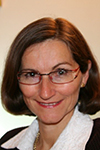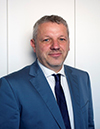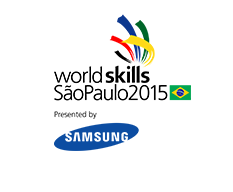12 August 2015: Future Trends
Day at a glance:
| Event | Host | Times | |
| Morning session | Skills, Sustainability, and the Post-2015 Development Agenda | Inter-Agency Group on Technical and Vocational Education and Training | 09:00-11:30 |
| Afternoon session | Prospective Methodologies for Skills Development | WorldSkills São Paulo 2015 | 13:00-17:00 |
| Evening session | Understanding the UNEVOC Network: A Networking Evening | UNEVOC | 18:00-20:00 |
Morning session
SKILLS, SUSTAINABILITY, AND THE POST-2015 DEVELOPMENT AGENDA
Representatives from international agencies and organizations active in the field of skills development will come together to discuss future international cooperation and development. The panel will address three main dimensions: why skills for work and entrepreneurship are important to the post-2015 agenda; what are the key inter-relationships between skills and key development sectors (as represented by the other 16 Sustainable Development Goals proposed by the Open Working Group at the UN); which skills development strategies, policies and programmes, and what forms of work-based learning, including apprenticeships, are most effective in addressing the economic, social, environmental, and political priorities of the new sustainable development agenda. Drawing on the experience of members of the Inter-Agency Group on Technical and Vocational Education and Training, this panel discussion will offer insight into best practices around the world and provide an opportunity to exchange ideas.
Location: Elis Regina Auditorium - Convention Palace
Keynote Speaker

Borhene Chakroun, Section Chief, UNESCO
Borhene Chakroun is an engineer and has a PhD in Education Sciences from Bourgogne University in France. His academic work focuses on the recognition and validation of prior learning. Borhene worked during the 1990s, as trainer, chief trainer, and TVET project manager. He has also worked as short-term consultant for the EU, World Bank, and other international organisations before coming to the European Training Foundation (ETF) in 2001. At the ETF, Borhene worked as Senior Human Capital Development specialist. He has also coordinated the ETF’s community of practice on National Qualifications Frameworks and Recognition of Qualifications. He is now Head of the section in charge of TVET at UNESCO and is leading the implementation of the UNESCO TVET strategy adopted in 2009. He coordinated the organisation of the Third International Congress on TVET in Shanghai in 2012. He has authored and co-authored various articles and books in the field of TVET. Much of his most recent work focuses on global trends in reforming TVET systems.
Panellists

Deborah Roseveare, Head, Skills beyond School Division, Directorate for Education and Skills, OECD
Ms Deborah Roseveare is responsible for the Skills beyond School Division. Her responsibilities span the PIAAC Survey of Adult Skills, policy analysis and advice on more effective vocational education and training and higher education, working with countries to build more effective skills systems at national and local levels and the OECD Skills Outlook. As Head of the Education and Training Policy Division between 2007 and 2011, she provided policy analysis and advice to help governments develop and implement more effective policies across all levels of education and training.
A New Zealand and British national, Ms Roseveare worked in the OECD’s Economics Department between 1993 and 2007 providing cross-country and country-specific analysis and policy advice on a broad range of economic and social issues including human capital, public finances, macroeconomics, ageing populations, product markets, labour markets, and fostering entrepreneurship. Between 1976 and 1993, she held various positions in the NZ public service.

Norbert Schöbel, Team Leader, European Commission
Norbert Schöbel, born 1961 in Munich, studied both political sciences and business management. He started his professional career in Brussels as parliamentary assistant in the European Parliament. He then worked for the representation of Rhineland-Palatinate in Brussels and several years for the Committee of the Regions before joining the European Commission in 2002. Since then he was active in different Commission services, particularly in the Directorate-General Education and Culture, first as policy officer in the field of education, then as Head of Sector for inter-institutional relations. In July 2011, he joined the Directorate-General for Employment, Social Affairs and Inclusion where he coordinated the work of sectoral social dialogue at EU level. Since July 2014 he has been in charge of work-based learning and apprenticeships and recently he became Team leader "Skills for the Young", which also includes the work related to the "European Alliance for Apprenticeships".

Shyamal Majumdar, Head of UNESCO-UNEVOC
Mr Shyamal Majumdar has been the Head of the UNESCO-UNEVOC International Centre for Technical and Vocational Education and Training since 2011. He has worked in the field of TVET for over 20 years as Director General of Colombo Plan Staff College for Technician Education (CPSC) in Manila (2007- 2011); Professor and Head of the Computer Science and Engineering Department at the National Institute of Technical Teachers Training and Research (NITTTR) in Kolkata, India; Faculty Member of CPSC. He has been engaged as expert in TVET in various capacities through his work in UNESCO Offices in Bangkok, Beijing and Cairo, GTZ and INWEnt the Food and Agriculture Organization (FAO), the Asian Development Bank (ADB) and the Asian Development Bank Institute (ADBI), as well as the World Bank. His areas of expertise are TVET, technical teachers training, Information and communication technology (lCT), total quality management (TQM), greening TVET, and qualifications frameworks towards quality assurance in TVET.

Prof. Dr. Reinhold Weiss: Deputy President and Head of Research of the Federal Institute for Vocational Education and Training
Studies of economics, economic and social history, economic and business education theory, and vocational education theory at the University of Cologne; doctorate at the University of Cologne; honorary professor for vocational education theory at the University of Duisburg - Essen; working at the Cologne-based Institut der deutschen Wirtschaft (“IW”) as deputy head of the Education Policy and Labour Market Policy research department and member of the Managing Board; appointed as Deputy President and Head of Research of the Federal Institute for Vocational Education and Training ("BIBB") in 2005; rresearch is focused on initial and continuing vocational training, company training and personal development, labour market and economics of education.
Afternoon Session
PROSPECTIVE METHODOLOGIES FOR SKILLS DEVELOPMENT
The education systems around the world face various problems of imbalances between supplying vocational training and the demand for skills derived from the production system. There are several reasons such as the gap between academic curricula and the demands of industry and the difficulty of vocational training institutions to attract qualified students. Part of the imbalances elapse from the vocational training institutions’ difficulties to anticipate the demand for qualifications, since the processes of designing a course with new skills, training students, and inserting them into the labour market can take a long time. The purpose of this session is to encourage the exchange of experiences between the institutions that are applying forecast methods and prospective foresight to anticipate demands for qualifications.
Location: Elis Regina Auditorium - Convention Palace
Panellists
Mr Borhene Chakroun; Chief, Section of Youth, Literacy and Skills Development Headquarters in Paris - UNESCO-UNEVOC representative
Borhene Chakroun is an engineer and has a PhD in Education Sciences from Bourgogne University in France. His academic work focuses on the recognition and validation of prior learning. During the 1990s Borhene worked as a teacher and senior teacher as well as a TVET project manager.
He has also worked as short-term consultant for the European Union, World Bank and other international organizations before joining the European Training Foundation (ETF) in 2001. At the ETF, Borhene worked as a Senior Human Capital Development specialist and Team leader of the EU funded regional project: Education and Training for Employment (MEDA-ETE). He has also coordinated the ETF’s community for National Qualification Frameworks and Qualification Recognition. He is now head of the TVET section at UNESCO and leads the implementation of the UNESCO TVET strategy adopted in 2009.
Mr Kostas Pouliakas – Expert in Education and Training at CEDEFOP
Konstantinos Pouliakas is an Expert in Education and Training at the European Centre for the Development of Vocational Training (CEDEFOP) and Honorary Lecturer at the University of Aberdeen Business School. He is the main project manager of CEDEFOP’s skill mismatch agenda, while he also works on issues related to skills anticipation and skills obsolescence.
A graduate of St. Antony’s College, University of Oxford, he completed his PhD studies as part of the Scottish Graduate Program in Economics in 2007, under a fully-funded EU Fellowship. He has held positions as a Research Fellow at the University of Aberdeen, and as an Invited Lecturer at the University of Cyprus. He has also acted as a Research Intern at the Bank of Greece and HM Treasury.
His current interests include Skills, Applied Labor and Personnel Economics, with an emphasis on financial incentives, the human capital theory and human welfare. He has published articles in academic journals, including Economica, Journal of Economic Surveys, Research in Labor Economics, Regional Studies, Scottish Journal of Political Economy, Kyklos and International Labor Review.
Mr. Hwang, Gyu-hee - KRIVET representative. PhD in Science and Technology Policy andSenior Research Fellow at KRIVET
Dr. Gyu-hee Hwang is a senior research fellow at the Korea Research Institute for Vocational Education & Training (KRIVET). He studied multi-disciplinary subjects such as Statistics, Economics and Science and Technology Policy. After completing his doctorate degree at SPRU, University of Sussex in the UK, he worked as a post-doctoral researcher for the Taiwanese Government and as an evaluator for the Korean National Assembly Budget Office.
His areas of interest include practical and academic issues related to HRST(science and technology human resources) and future perspectives (i.e. future work scenario, future skills, financial literacy etc.). His main research studies are: “New Approaches for IT Human Resource Development: Korean Cases and their Applicability to Other Countries”, Asian Journal of Innovation and Policy, 3(2), 2014, “Coordination between R&D and Human Resources in the post catching-up era”, International Journal of Contents, 8(3), 2012; Implementation of Green Jobs Activities - Green Jobs Study in Energy Intensive Industries in Asia, ILO, 2011; “ESD and Technical professionals in the Green Era: focusing on Green Car technical professionals”, in Korean National Commission for OECD (ed) New Approaches to New Futures, 2010; “How do Skills Change with Technological Changes?”, Income Distribution, Employment and Growth, ESI (Rome), 2002.
Marcio Guerra – Economist, SENAI Foresight Unit
Moderator Panel - 1
Bachelor in Economics, MBA in Finance and Master´s degree in Economics by the Catholic University in Brasília-UCB. He also worked as a professor in the Economy course – UCB, and as a consultant for the UNDP, developing projects with the Ministry of Education. He joined SENAI in 2004, and currently manages the Work Observatory, responsible for Employment Projections and The Industrial Work Map.
David Kupfer – Economist, Federal University of Rio de Janeiro
David Kupfer, holds a PhD in Economics/UFRJ and is an Associate Professor at the Economy Institute in the Federal University of Rio de Janeiro (IE/UFRJ), where he coordinates the Research Group on Industry and Competitiveness (GIC).
He worked as an advisor for the President of the BNDES from November 2011 to March 2015. He coordinated the “Brazilian Industry Competitiveness Study” (1992-94), the“ Integrated Industrial Chain Competitiveness Study” (2002) and was the General Coordinator for the“PIB Project- Investment Perspectives in Brasil ” (2008-2010), among other research activities.
He has written many studies including “Industrial Economics: Theoretical Foundations and Practices in Brazil” and “Made in Brazil: Competitive Challenges for the Brazilian Industry”, which received the Jabuti award for the Business and Economics category in 2003 and 1996. He received the ABDI Award for Industrial Policy, in the Academia category in 2006 and an honourable mention in the OEB Economist of the Year Award in 2014. He is also the editor for the REC - Journal of Contemporary Economics published by IE/UFRJ, and a member of the Economic Council at FIESP and also writes for the Valor Econômico newspaper, among other activities.
Paulo Bastos Tigre – Federal University of Rio De Janeiro
Industrial economics and technology researcher for over 30 years, working with information and communication technology, technological foresights, Science & Technology policies, industrial organization and economic development. He is currently a professor at the Economics Institute at UFRJ.
His academic background includes a PhD in Science and Technology Policy (SPRU, University of Sussex), a Master’s in production engineering (COPPE-UFRJ) and a BSc in Economics (UFRJ).
He has worked as a visiting researcher at the University of California (Berkeley), University of Paris XIII and the University of Brighton. He works as a consultant for international organizations (UNIDO, UNCTAD, ECLAC, ALALC) and national organizations (SENAI, CGEE, BNDES, among others) regarding topics related to innovation and public policy. He has written more than 80 articles and books including Managing innovation: Technology Economics in Brazil, ed. Elsevier, 2014.
Afonso Fleury – University of São Paulo
Professor at the University of São Paulo. His career was developed in the Department of Production Engineering, where he created the Work, Technology and Organization department.
He is Head of the Department and President at the “Fundação Vanzolini”. He developed studies and projects with the International Labour Organization, the United Nations University, UNDP/UNCTAD, among others.
As a visiting researcher, he worked at the Institute of Development Studies in the University of Sussex, the Tokyo Institute of Technology and works on projects with the Institute for Manufacturing, University of Cambridge. He worked on studies and projects with the International Labour Organization and the United Nations University, UNDP/UNCTAD, among others.
His main research and publication topics include work organization, technology and engineering management, managing global operations and internationalization of companies in emerging countries.
He was a member of the Advisory Committees at the CAPES and CNPQ (National Counsel of Technological and Scientific Development).He worked as an Associate Editor of the Journal of Manufacturing Technology Management (England) and as Editor of the Regional Operations Management Research (USA).
Marcello Pio – SENAI Specialist – Foresight Model
Marcello holds a PhD in Science by the Chemistry School at the Rio de Janeiro University, MBA in Quality Management, at the Fluminense Federal University, and in Strategic Management at the Candido Mendes University. Bachelor in Chemistry, at Universidades Reunidas Professor Nuno Lisboa. He is responsible for managing SENAI Foresight models in industrial sectors.
Luiz Antonio Cruz Caruso – Executive Manager for Studies and Foresight at SENAI.
Moderator Panel - 2
Economist, holds aPhD in Science, Public Policies, and Development Strategies from the University of Rio de Janeiro; He also holds a Master´s Degree in Industrial and Technology Economy and completed an Education and Work Economy postgraduation programme. He is currently an Executive Manager at the National Confederation of Industry Unit for Foresight Studies. He has been working with research planning and evaluation for 40 years.
Dr. Wayne Wesley - Executive Director HEART Trust/National Training Agency, Jamaica
Dr Wayne Wesley is the Executive Director of the HEART Trust/NTA. He joined the Organization in 2009 as the National Programme Director, and was subsequently promoted as Chief Technical Director responsible for developing and implementing the Organization’s strategic priorities. Dr. Wesley is also regional leader in workforce development as the Chairman of the Caribbean Association of National Training Agencies (CANTA). Dr Wesley holds a Bachelor of Education in Industrial Technology (UTech); a Master´s in Manufacturing Systems (Southern Illinois University), and a PhD in Industrial Engineering from Florida State University. He has successfully completed Executive Education programmes at the Harvard Kennedy School and Manchester Business School in Leading Economic Growth and Advanced Management Achievement, respectively. He also holds a Post Graduate Diploma in Financial Services Management from the Jamaica Stock Exchange e-Campus, and a Certificate in Strategic Guidance and Leadership from the Chartered Management Institute in the United Kingdom.
Dr Wesley is an Engineer and Senior Member of the American Society for Quality. He was a member of the UTech Council in Jamaica and is currently a member of the Board of Directors for the Jamaican Foundation for Lifelong Learning (JFLL). He is also the Vice Chair for the Education and Training Work Group (ET – TWG) at the Planning Institute of Jamaica (PIOJ) and is also a member of the Jamaica Cadet Committee.
Before joining the HEART Trust/NTA, Dr Wesley worked at the University of Technology (UTech) in Jamaica for over fifteen years. He studied at St. Andrew Technical High School and enjoys playing basketball.
Mr. Matías Barroetaveña - Secretario de Empleo, Ministerio del Trabajo y Seguridad Social Argentina
Bachelor in political science (University of Buenos Aires). Master in public policy (UNSAM) and Master in Public Policy and Development Management (Georgetown University - Washington, USA).
Since 1997, he has directed the Urban Observatory Institute dedicated to research in Buenos Aires. He has taught political sciences and public administration at the University of Buenos Aires, University of Lomas de Zamora and Universidad Austral.
He has written many publications on State and Public Administration. He also had a public position as President for the Buenos Aires municipal auditing office.
He worked as a legislative adviser for CABA and the directory for public service entities In Buenos Aires.
Mr. Alfonso Prada - Director General Servicio Nacional de Aprendizaje SENA Colombia
Alfonso Prada is a lawyer and holds a post-graduation degree in constitutional law, legal philosophy and theory. He´s been a professor at the free University. In 1997, he was elected Councilman of Bogotá by the Colombian Liberal Party. Re-elected in 2000, he lead the Council in 2003 with the Enrique Peñalosa "The Bogotá we want" movement. At the Municipal Council he was a speaker created many important projects for the city, such as the Transmilênio, urban renewal projects and also worked for the Public Space Administrative Department . He led initiatives to establish standards for transport, security, education, urban development, public services and the Management Plan. In 2006, he resigned from the Council of Bogota to try to join the Senate, but this did not occur.
Alfonso Prada served as director of the Local Institute for Recreation and Sport in Bogota. He worked as a consultant for the National Government, the UNDP and IDEA International. In 2010 supported by former mayors Enrique Peñalosa, Luis Eduardo Garzón and Antanas Mockus, he was elected as representative in the Bogota Municipal Council. In February 2011, he was appointed Director of the Bogotá Green Party and in September 2012, he was appointed by the national board of the Party as Community Representative President. He was also appointed Director General at SENA.
Mr Minor Rodríguez - Executive President Instituto Nacional de Aprendizaje INA
He holds a Master´s in Educational Institution Administration and Specialized in Student Affairs at the Technological Institute of Monterrey in Mexico. He also completed Religious Education and Educational Administration studies at the Catholic University of Costa Rica, Anselmo Llorente and La Fuente. From 1995-2014 he worked as Educational Institution Director for Middle schools and High Schools. He was a member of the Competitiveness Council for the Brunca Region (2012- 2013). Throughout his professional career, Mr. Rodriguez has been active in the Community Association, where he led major projects benefiting communities with low development rates.
Mr Enrique Deibe - Cinterfor/ OIT
Moderator Panel - 3
Mr. Enrique Deibe studied Labour Relations at the University of Buenos Aires and completed his post–graduation course at the University of Bologna in Italy, a as Labour Relations expert. He was appointed Director of ILO/ Cinterfor on 1 May 2014.
Since May 2003, he has been working as Secretary of Employment for the Ministry of Labour, Employment and Social Security in Argentina. During this period, he has been in charge of the following programs : heads of household; Employment programs; Safe training and employment; Young people with more and better work opportunities; Implementation of public employment service networks and implementation and administration of training networks. He was also involved in preparing various bills related to rural employment, homes and protected work, as well as decrees and resolutions for employment purposes, focused on youth and unemployed professionals.
Since 2001, he´s worked as a Professor teaching Industrial Relations Introductory lessons at the National University of La Matanza, and has been part of the Department Social Work Sociology at the Buenos Aires University. He has also been working as a sociology professor at Universidad National de Moreno, since 2012. From August, 2013 until May 2014, he was a Regular Professor and Deputy Dean at the Department of Economics and Management.
He has had international experiences as representative for the Argentine Government at ILO, ILO/ CINTERFOR, WAPES, Mercosur and in the Committee on Employment at G20. He also participated in several conferences and seminars.
He is the author and co- author of and articles in magazines and specialized books about Labour relations and social sciences.
Evening Programme
UNDERSTANDING THE UNEVOC NETWORK: A NETWORKING EVENING
Would you like to get introduced, make short pitches to discover similarities, identify common challenges, explore synergies, and build partnerships with UNEVOC Centres in Asia and the Pacific, Africa, Arab, Latin America and the Caribbean, and Europe and North America, UNESCO’s five regions? Do you have an idea for a project and are you looking for UNEVOC Centres to partner with? Then this reception is especially for you to create contacts and exchange ideas through a semi structured informal gathering.
This reception aims to create an open space for networking among participants around five main discussions with the Private Sector, NGO, Government representatives, and UNEVOC Centres across regions.
Please bring plenty of business cards, brochures, or short hand-outs (in English) about your companies or organizations and be ready for the experience.
